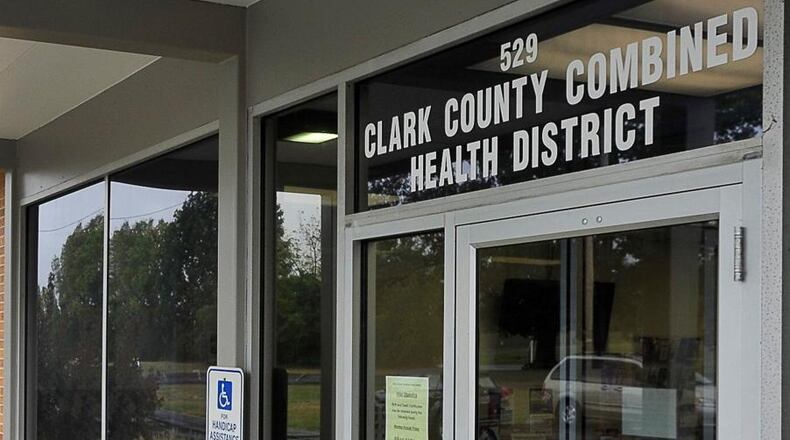Of those cases, just one of the patients was a known contact of another positive coronavirus patient, CCCHD spokesperson Emma Smales said.
“They were family-related,” Smales said.
The three new cases are two males and one female, who are all in their 50’s, according to the CCCHD’s website. None of the patients were hospitalized at the time of their test confirmation.
The first case in Clark County was reported on March 18. Most patients are in their 60s and 70s and have been hospitalized, according to the CCCHD’s website.
Cases have been found in Springfield, Bethel Township, German Township, Mad River Township and New Carlisle, however, the district is unable to say where each patient is from specifically in order to protect the patient’s identity, Smales said.
MORE FROM RILEY NEWTON: Clark, Champaign County receive ‘C-’ rating in social distancing, according to national data tracking website
Smales said it’s “impossible,” for the district to know how many Clark County residents have been tested for the coronavirus.
“We only receive information when we have a positive case because tests are being sent to multiple labs,” Smales said.
Smales said it’s also hard to determine how many tests have been given to local residents because not all residents are being tested in the county.
“We could have a resident get tested at (the University of Dayton) and we would never know about it if it comes up negative,” Smales said.
No deaths have been reported in the county, according to the CCCHD’s website. However, one Miami County nursing home resident, who lived in New Carlisle prior to moving into the nursing home, died on March 19.
Earl Bolinger, 93, is one of 11 people to die in Miami County due to a COVID-19 outbreak at two nursing homes - Koester Pavilion in Troy and and SpringMeade Health Center in Tipp City, according to Miami County Public Health. He was a resident at Koester Pavilion.
Initial reports counted Bolinger as a Clark County case, however because he was a full-time resident at Koester Pavilion at the time of his death, he is considered a Miami County case. Koester Pavilion is an assisted living facility that offers long-term care and short-term rehabilitation services.
Bolinger was awaiting coronavirus test results when he died, Miami County Coroner Dr. William Ginn said. Prior to his coronavirus results, his death was being treated as coronavirus-related, Ginn said on March 20.
Bolinger is the father of a Bethel Twp. man in his 70s, who was Clark County’s first positive coronavirus case. The man was in short-term care at Koester Pavilion, then was transferred to the Dayton Veteran Affairs Medical Center hospital, where he was diagnosed with coronavirus.
Smales said the Bolinger and his son shared a room at Koester Pavilion.
MORE FROM RILEY NEWTON: Interim appointed after Clark County Treasurer retired
If a Clark County resident believes they might have the coronavirus, Smales said, there are a couple of different routes the patient may have.
“If they have mild symptoms that would not usually require them to go the doctor, we ask they stay home and self isolate until they are fever-free for 72 hours without the use of a fever-reducing medicine,” Smales said.
Patients must also see symptoms improve for at least seven days and then remain symptom-free for an additional seven days, Smales said before they should leave self-quarantine.
“If they are showing symptoms that would normally warrant a visit to the doctor, call your doctor first. They may tell them they need to go to the emergency room or direct them somewhere to be tested,” Smales said. “If they get into an emergency situation where they are having difficulty breathing and need to call 9-1-1, we ask them to let them know they are showing symptoms so everyone can use the proper (personal protective equipment.”
About the Author
